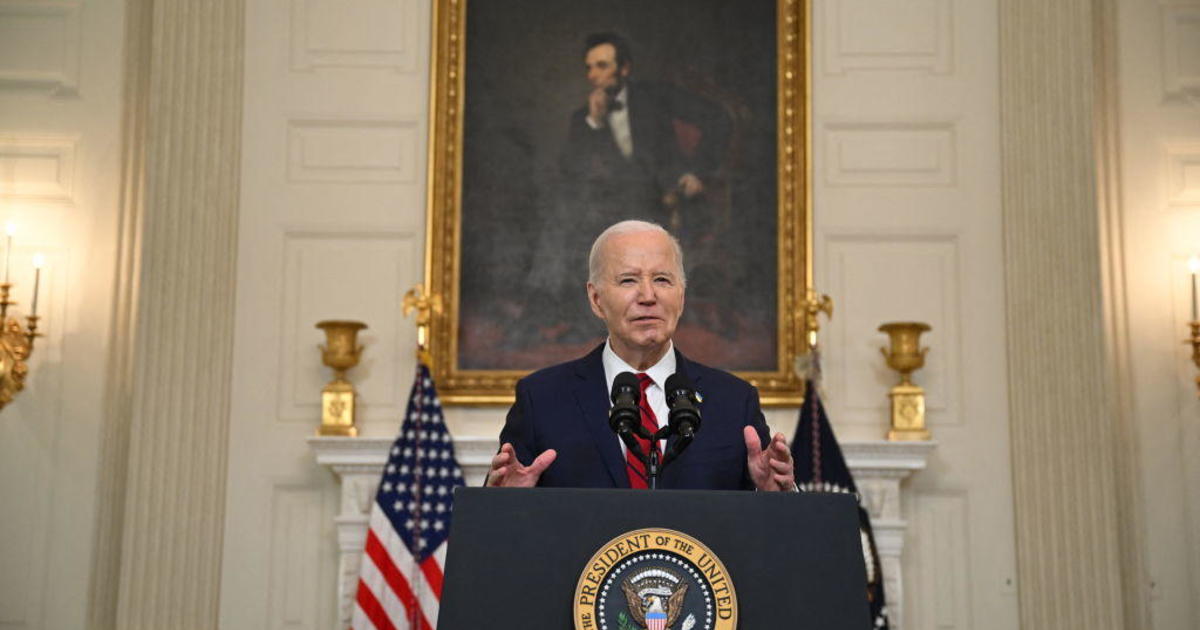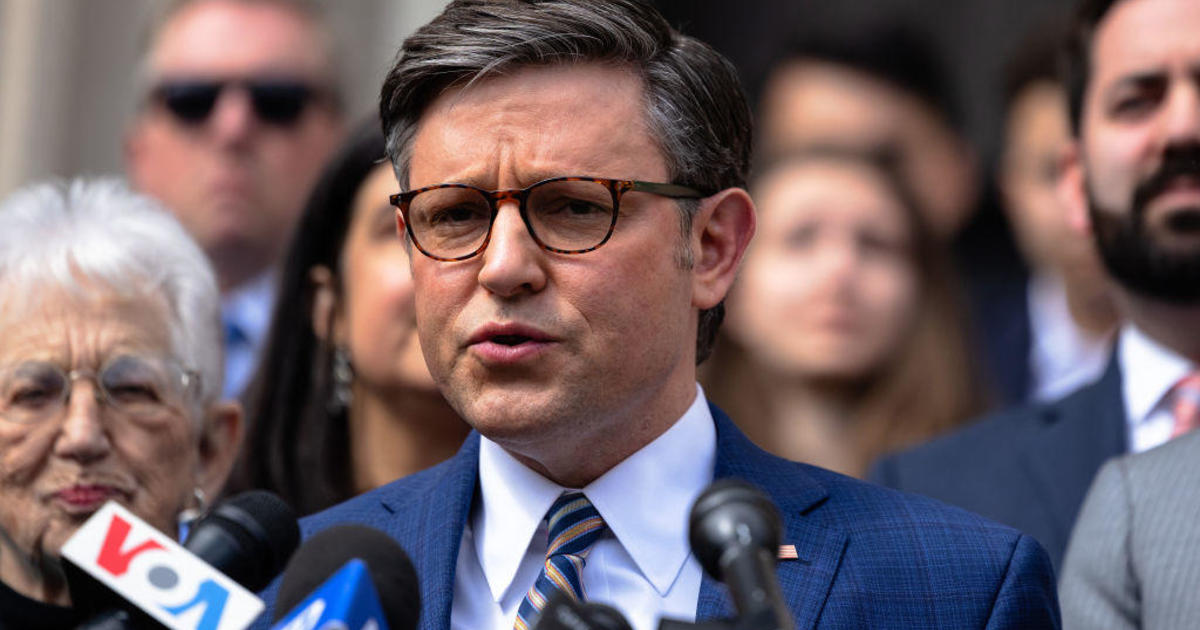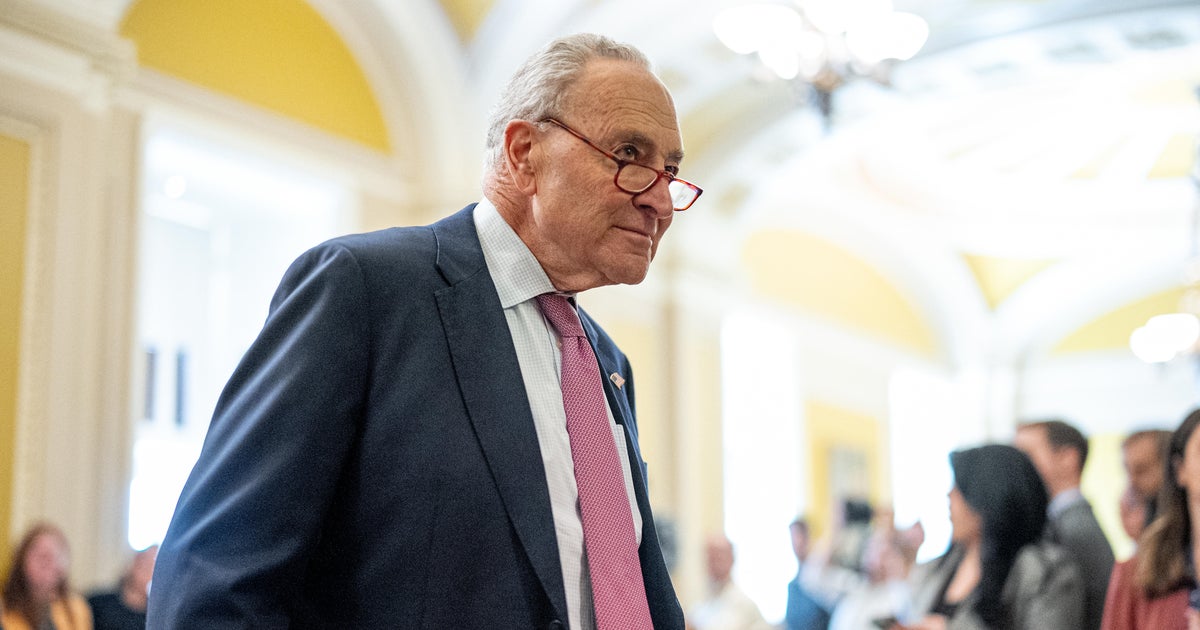16 senators from both parties meet with White House on COVID-19 relief plan
Washington — A bipartisan group of senators is pushing the White House for more details on its $1.9 trillion rescue plan, with some suggesting to administration officials on Sunday that President Joe Biden needs to provide more information on how money would be spent — and consider dividing up his ambitious legislation into smaller proposals.
Sixteen senators from both major parties and three senior White House aides met virtually on Sunday afternoon to discuss Mr. Biden's American Rescue Plan. The one hour and 15 minute call was set up by moderate Democratic Senator Joe Manchin of West Virginia.
Mr. Biden's proposed relief plan includes $400 billion for slowing the spread of COVID-19 and increasing vaccine capabilities; more than $1 trillion to assist families needing direct financial support; and $440 billion in emergency funds for cash-poor small businesses and communities.
Included in the package are $1,400 stimulus checks that, combined with the recent round of $600 payments, bring the total relief sent to Americans to $2,000. The amount of direct aid to send to individuals was a key sticking point in the negotiations of the relief package passed at the end of 2020. Other financial aid includes expanding unemployment insurance by $100, bringing the weekly total to $400, and increasing the child tax credit to $3,000 per child.
Participants in the meeting stressed they're pushing the administration for more details on how quickly it can distribute the vaccine nationwide, saying it's an urgent priority.
"There were certainly a consensus that the number one priority is vaccination," said Maine Senator Angus King, an independent. "And also testing and tracing, we can't let up on that. But a consensus that we need to identify the bottlenecks, whether it's production, distribution, administration of the vaccine, and move aggressively on that. Everybody believes that's the that's the number one priority, and there was absolute consensus on that."
Some of the participants signaled they'd like the Senate to work out a framework for a deal in the next two weeks — before former President Trump's impeachment trial begins on February 8. But others said the impeachment trial didn't come up on the call.
Although some participants called the meeting "productive" and a good first step, Republican Senator Susan Collins, who attended the meeting, called it "premature" to be discussing legislative action of this size and scope. She said she would be suggesting a more "targeted" package, especially focusing on vaccine distribution.
Representatives on the call from both parties said they would be pressing the Biden administration for more clarity on how it calculated the potential federal aid needed for schools, states and cities. Some senators are asking for more information on how aid could be distributed to cash-strapped municipalities and states.
King said there was a "fair amount of discussion of the data" to figure out how aid was calculated.
"In other words, they have, I think, $130 billion for education," King said. "Where does that come from? What's the basis of it? And there were questions about that. Another sort of detail question is, how much money is still in the pipeline? How much has been committed and stemmed from the prior relief packages?"
Democratic Senator Jeanne Shaheen of New Hampshire, who was also part of Sunday's meeting, said "more data would be helpful."
She said there was a lot of discussion on "targeted aid" at states, especially recognizing what states will have positive revenue and will require less aid.
"The state and local needs is one of the things that has continued to be an issue," Shaheen said. "It was an issue as we were trying to put together the last COVID package in December."
But Shaheen called it a "really positive start."
"The fact that we have a new administration not even a week on the job and they're reaching out to the bipartisan group of senators that were really important to getting the last COVID relief package done," Shaheen said. "It was an opportunity to hear from the administration their reasoning behind what's in the COVID package and for us to ask questions and to express our views."
Congress passed a $900 billion relief package in December, which several senators mentioned when discussing Sunday's call.
"Remember, we just passed almost a trillion dollar package less than three weeks ago," King said. "So we need to know where that stands in terms of execution, how much has been distributed, how much is left, to what extent the money that hasn't been expended has been accounted for in the new proposal."



